Whether you buy baby food at the store or make it from scratch, you need to understand proper baby food storage. As your baby transitions to solid foods, you don’t want to spend time prepping, cooking, and pureeing a healthy meal only to have it go to waste along with all your efforts.
Making homemade baby food is only worthwhile if you have a good plan for storing it to ensure it remains fresh for as long as needed and your baby has more than enough ways to enjoy it.
Read on to learn more about storing homemade baby food and adhering to proper baby food safety procedures.
Food Storage guidelines for your Baby
For easy, safe baby food storage, here are a few simple guidelines to follow:
- You can refrigerate pureed store-bought baby fruit and vegetables can be refrigerated for up to 72 hours and keep them frozen for eight months.
- You can keep store-bought pureed meat, poultry, or fish in the fridge for 24 hours after cooking and then store it in a freezer for a month or two.
- Homemade baby foods can stay in the fridge for 24 to 48 hours and in the freezer for one to two months.
Food Safety Tips
You should know that your babies’ digestive and immune systems are still developing, and they don’t have the same immunity as older children and adults. Therefore, when introducing solids, you must pay close attention to food safety and hygiene when preparing and storing baby food.
Follow these safety tips from the American Academy of Nutrition and Dietetics to make sure you’re feeding your baby the healthiest, most nutritious food possible:
- Clean your tools, cutting boards, pots, and food storage containers thoroughly.
- Store your fruits and vegetables appropriately.
Take out the pits and seeds. - Cook the food until it is incredibly soft.
- Fruit should be mashed or pureed in its juice (with no sugar or honey added to sweeten).
- To avoid bacterial growth, thaw frozen foods in the microwave right before using them in cooking.
How to keep Store-Bought Baby Foods
Most store-bought baby food is shelf-stable until opened. If you purchase baby food from the ambient section, you can keep it at room temperature until expiration. But be sure not to use it after the expiration date.
You also want to ensure that you seal the product correctly without damaging the packaging when opening it. For example, check that the plastic cap seals on pouches are not broken, and when opening jars, listen for a “pop” sound, which indicates that it has been properly sealed and is safe to eat. If you find that the food item was not properly sealed, be sure not to use it for your baby.
How to store Baby Food in the freezer
To store baby food in the freezer, you should:
- Thoroughly clean and sanitize your Chiill Freezer Tray before spooning puree into each section.
- Place the tray in the freezer.
- Hint: Feel free to use a dry erase marker to add the date of preparation on the silicone lid of. (Note that store-bought fruits and vegetables can be frozen for 6 to 8 months, whereas meats, poultry, and homemade baby food can be frozen for 1 to 2 months.)
- When it’s time for your baby to eat, simply pop out portions of the frozen puree as needed, and reheat.
- Baby food freezer trays are advantageous for portioning homemade baby food. Because the cubes are 1.4 ounces in size, you can effectively measure the quantity of food your baby is going to eat and thaw smaller amounts at a time to minimize waste.
Quark’s Chiill is unlike other silicone baby food freezer trays. Chiill consists of a thicker, more rigid silicone formulation and withstands heavy use because of its amazing design, day-in, and day-out. In addition, the tray and lid are made from food-grade material safe for use in the fridge, freezer, microwave, oven, and dishwasher.
Chiill also comes with a silicone lid that features six tabs for secure, all-around closure. Made from transparent silicone for accessible inventory, the cap also allows stacking in the fridge or freezer to save valuable space.
How to store baby food in the Refrigerator
A refrigerator can be used to store baby food for a short period. Store-bought foods can be kept in their original containers with the lid tightly closed, whereas homemade foods should be kept in an airtight container. An example of such an airtight container is Storii, an ideal all-in-one solution for convenient storage and serving. All parts are BPA-free and freezer safe, and it features an integrated ice pack that clips securely into the lid and can keep food cool and fresh for up to 5 hours.
Always store Baby food on a shelf in the refrigerator. However, due to temperature fluctuations with open and closed doors, a refrigerator door is not a safe place for baby food storage.
It is recommended to keep homemade baby food in the refrigerator for up to 48 hours after being prepared. Many food safety authorities recommend more extended periods. Bacteria growth is less likely in a puree with this time limit. You’re also more likely to have a delicious meal if you keep the smell of the fridge at bay.
How to Thaw baby food
If you’re storing baby food in the refrigerator, you need to know how to get it to an edible temperature for your baby. Here are some guidelines on how to defrost and reheat baby food.
Defrosting
Before reheating frozen food, allow it to defrost thoroughly. The safest method is to defrost it in the fridge (never at room temperature) or in the microwave (using the defrost setting, and stirring very well to avoid hot spots). Make sure to use the food within 24 hours of defrosting it.
Reheating
Baby purees are often best served at room temperature but resist the urge to partially reheat food for your baby to avoid waiting for it to cool. To kill bacteria, reheat baby purees until steaming hot, cooking throughout, unless served cold straight out of the fridge.
Note that you should only reheat foods once, so split your puree into child portions before storing it in the refrigerator or freezer.
General Tips for Storing baby food
Below is a summary of our baby food storage guidelines, as well as some additional tips for storing baby food:
- Refrigerate fresh baby food in an airtight container for up to three days.
- Use a freezer tray to freeze.
- Store frozen baby food in a freezer storage bag for up to three months.
- Label the freezer trays with the contents as well as the date.
- To thaw the food, remove a portion or more from the freezer tray and place it in an airtight container. Then thaw in the refrigerator overnight.
- Discard any food that remains in your baby’s bowl after a meal.
- Reheat the food only reheated once.
Final Thoughts
Your baby is growing beautifully, and so is that little tot’s appetite. However, it is critical to properly store your baby’s first solids to ensure they stay safe to consume. If you have purchased baby food, the most important rule is to follow the instructions on the label. Baby food that does not need refrigeration should be stored in a cool, airtight, dry place. For example, keep homemade baby food at the back of the freezer or refrigerator where it is colder than on the door where temperature changes often.
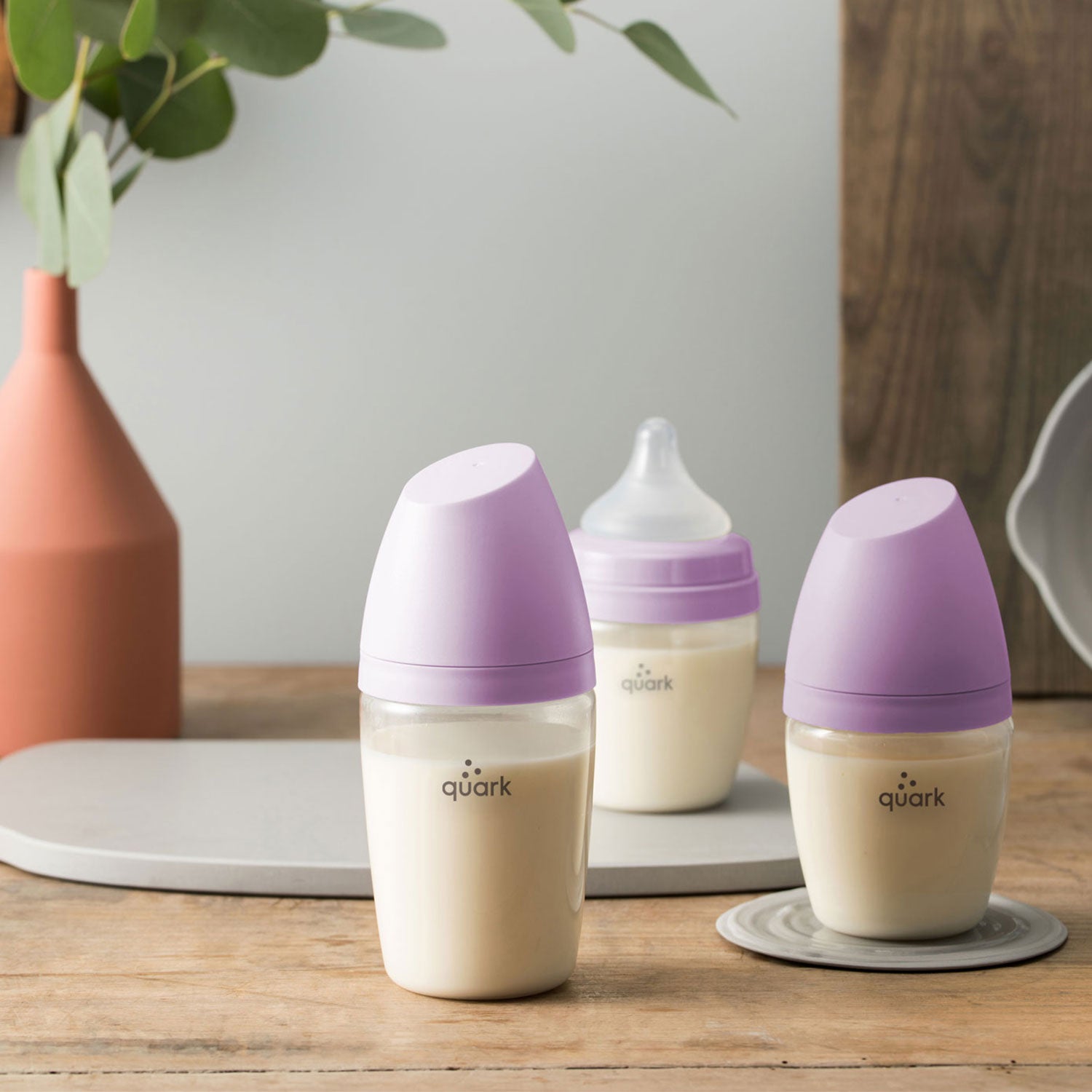
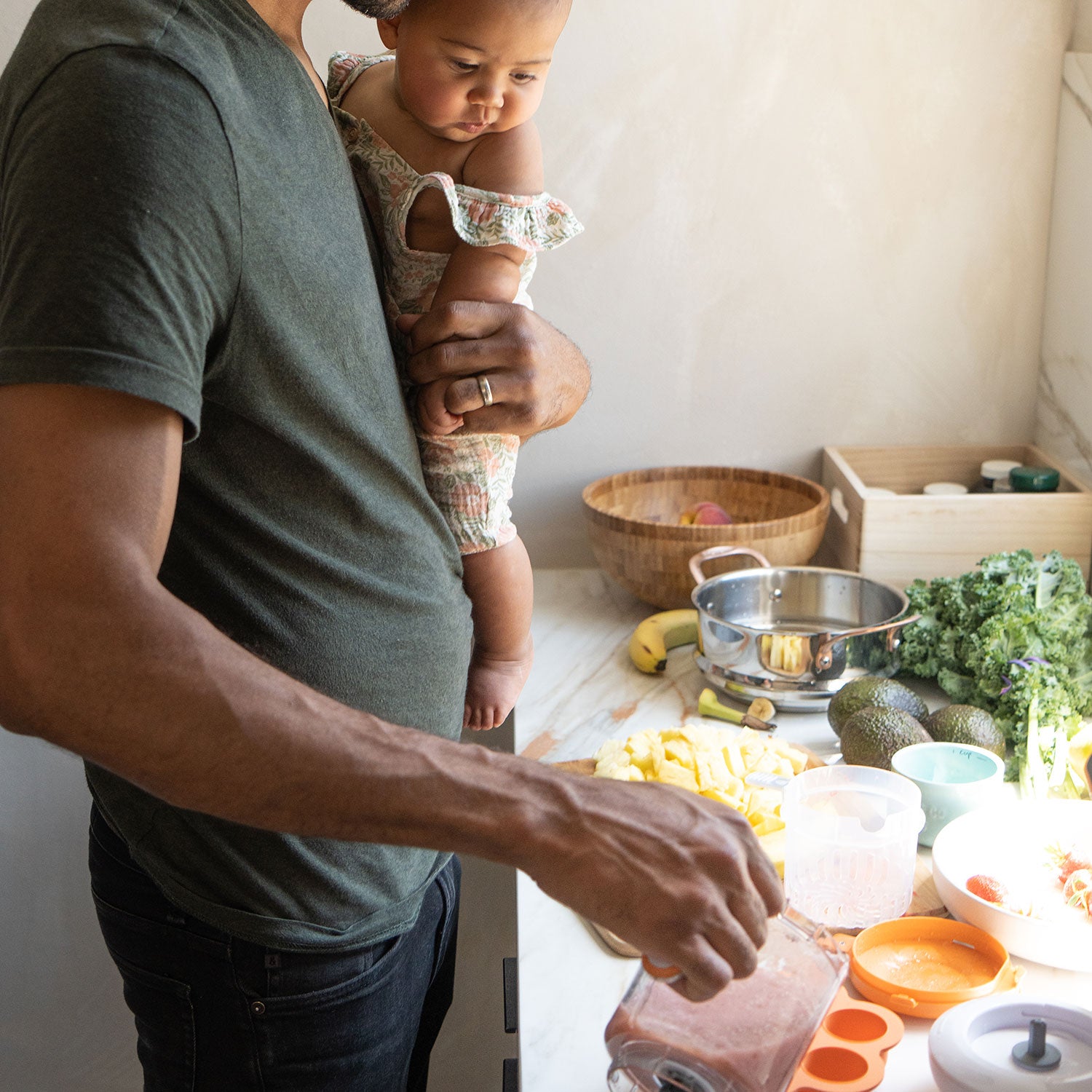
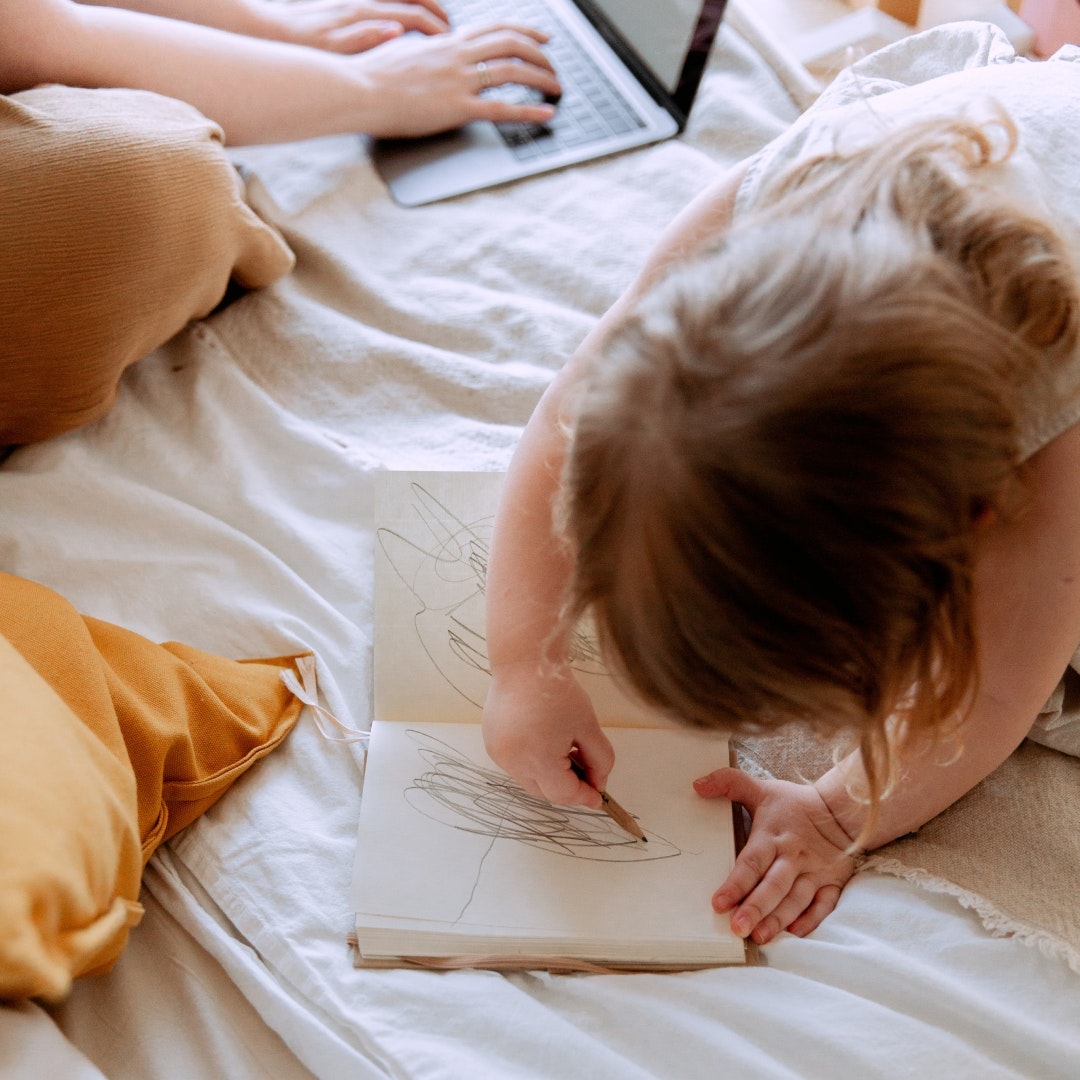
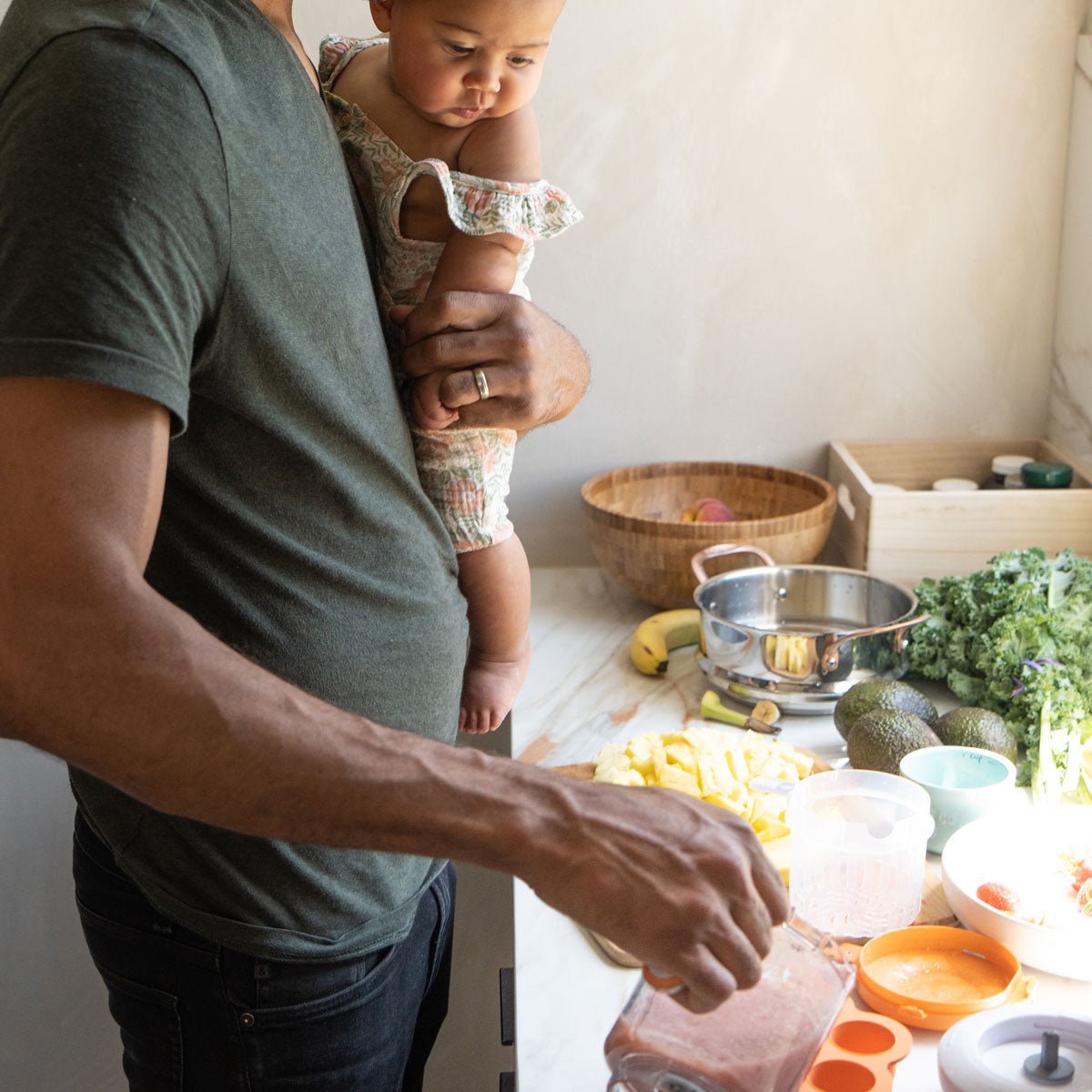
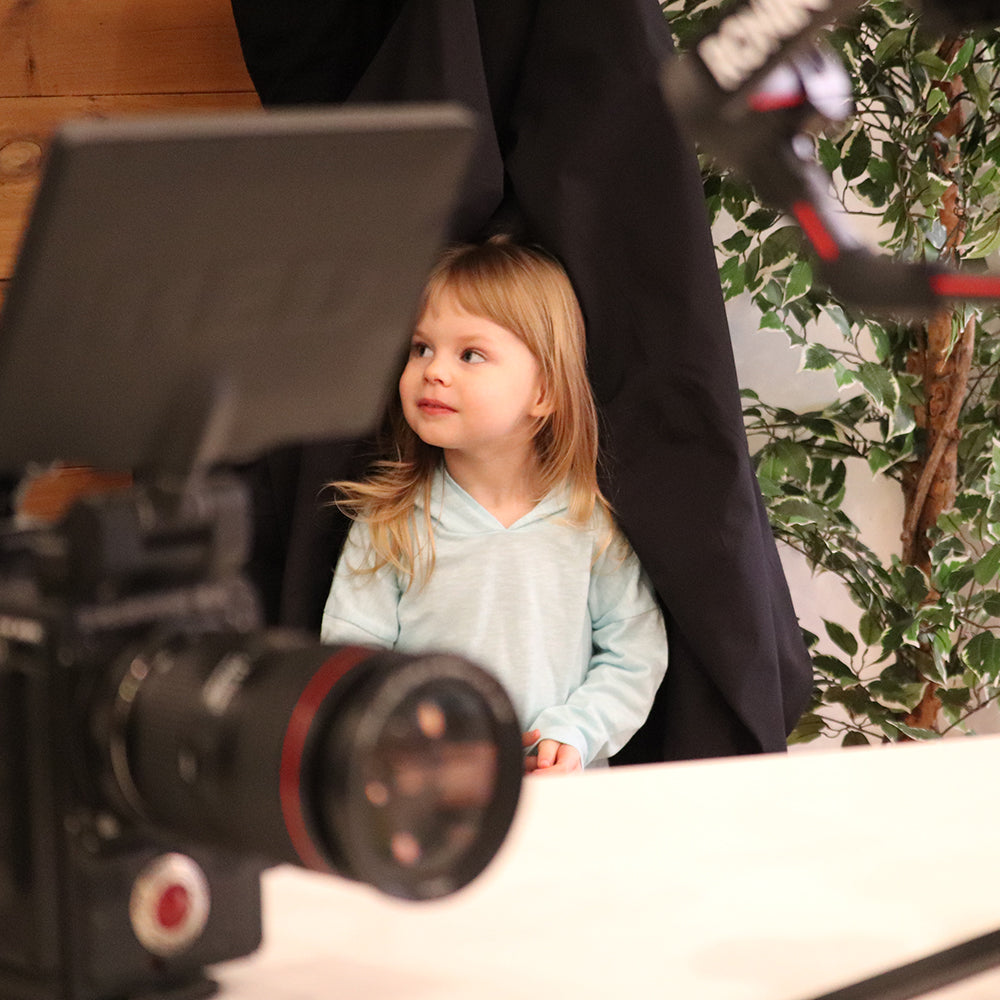
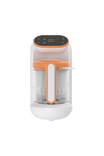
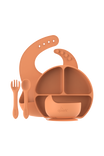
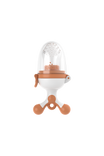
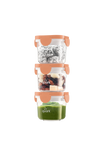
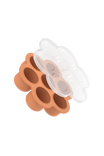
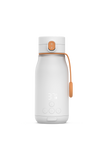
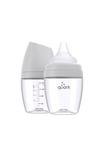
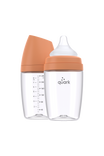
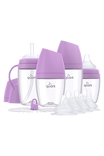
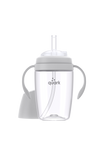
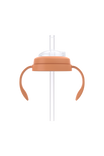
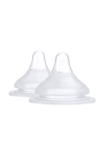
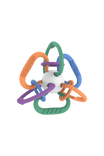
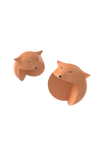
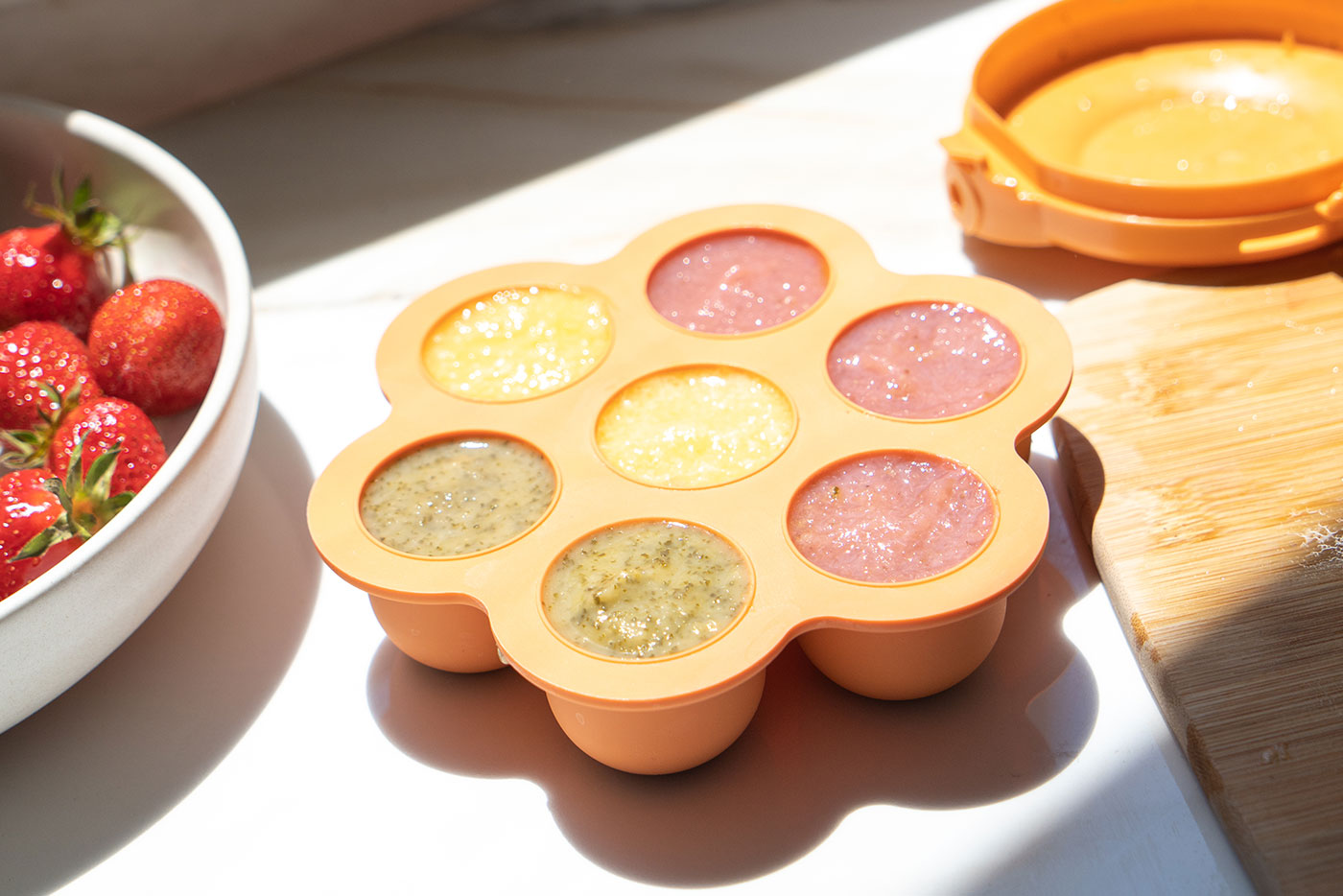
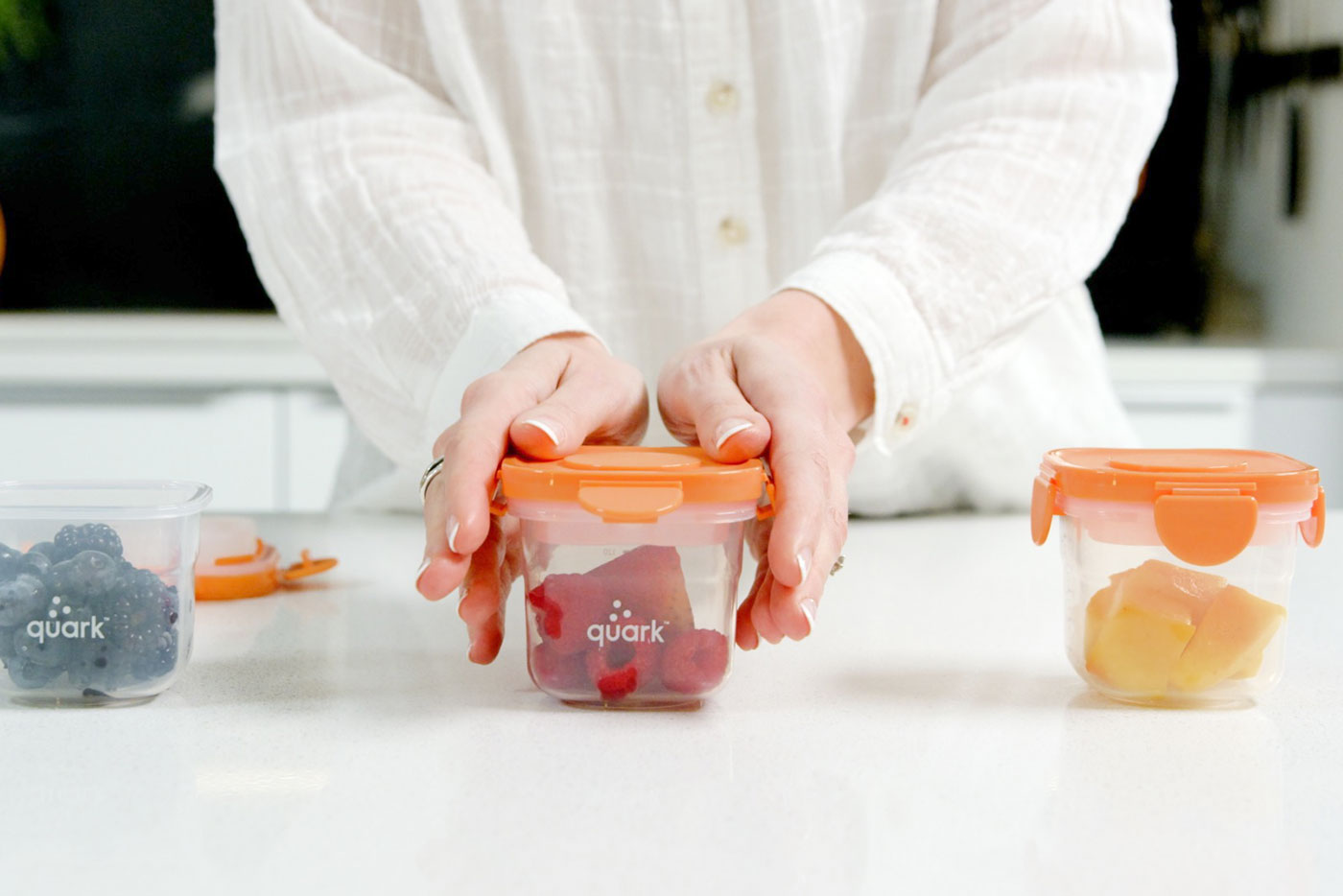
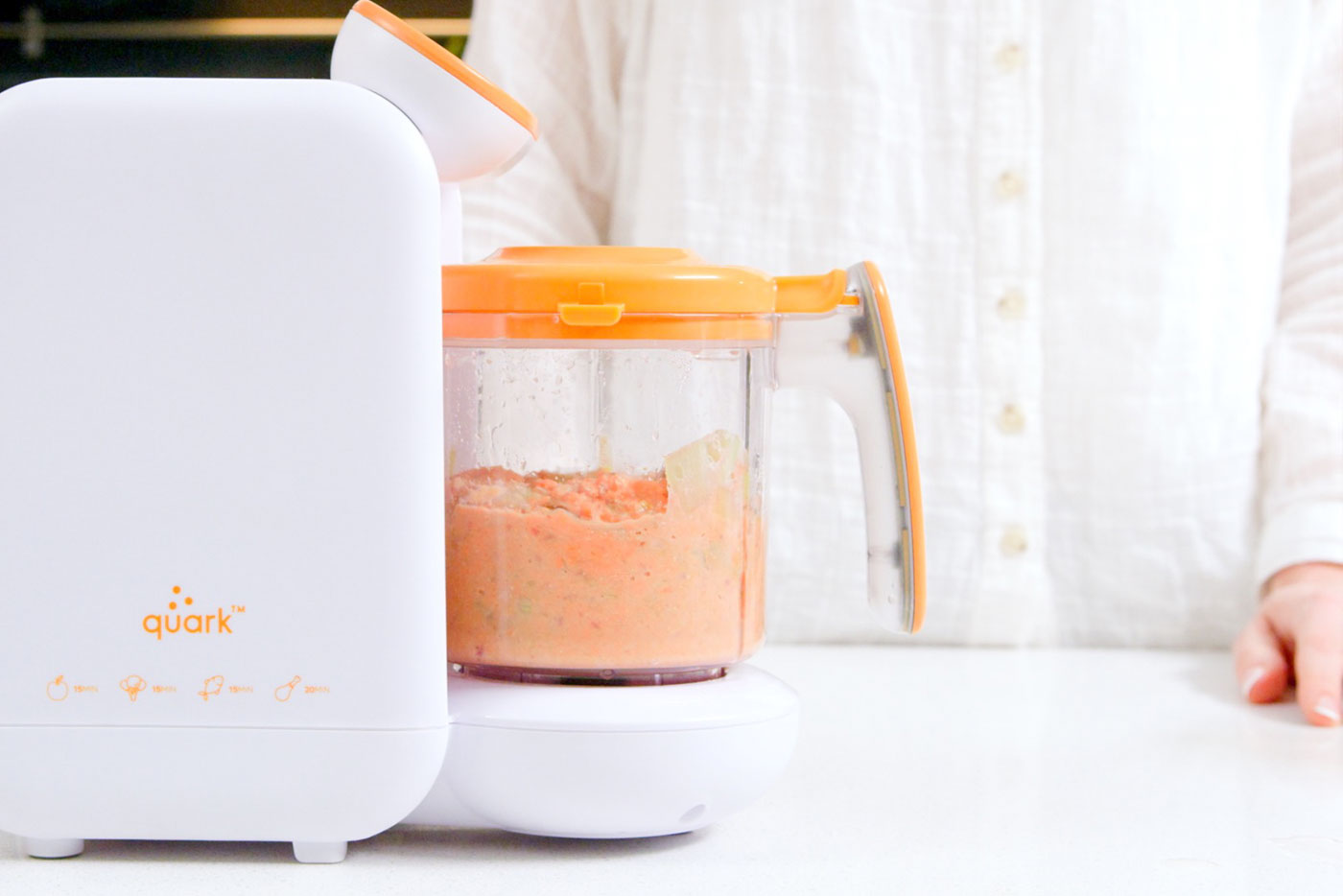
Laisser un commentaire
Tous les commentaires sont modérés avant d'être publiés.
Ce site est protégé par hCaptcha, et la Politique de confidentialité et les Conditions de service de hCaptcha s’appliquent.